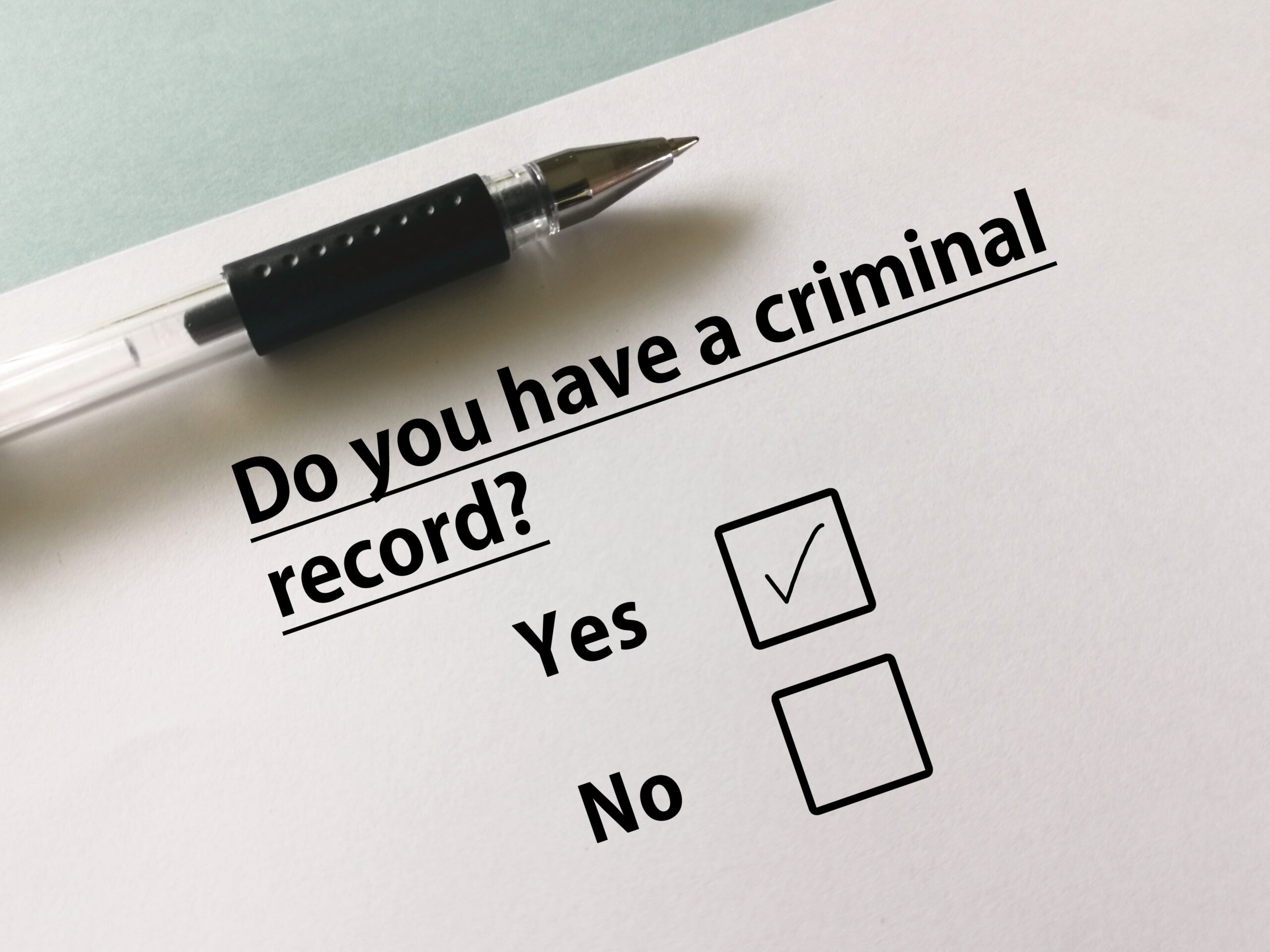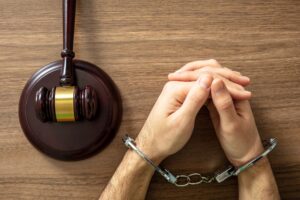Can I Own a Gun in California With a Criminal Record?

California has some of the most rigorous gun laws in the United States. The state makes legally owning a firearm complicated, if not outright impossible, for anyone with a criminal record.
Did you know that in California, a single misdemeanor involving domestic violence could strip you of your right to own a gun for ten years—or even for life if the offense is severe enough?
If you’re grappling with a criminal record and wondering whether you can legally own a gun, you’re not alone. In this article, we’ll explore the various factors determining your eligibility to own a firearm in California, the specific legal obstacles you might face, and the steps you can take to restore your gun rights.
If you face these challenges, don’t navigate them alone. Contact Los Angeles criminal defense attorneys at The Rodriguez Law Group Los Angeles Criminal Defense Attorneys for legal advice tailored to your situation. Call us today at (213) 995-6767.
Understanding California’s Gun Laws
California’s approach to gun control is among the strictest in the nation. The state’s laws tightly regulate who can legally possess firearms, often leaving little room for interpretation. For those with a criminal record, the stakes increase.
To grasp how your criminal history might affect your right to own a gun, you must first understand the legal framework governing firearm possession in California.
California Penal Code 29800: The Foundation of Firearm Prohibitions
At the heart of California’s gun laws is Penal Code 29800, often referred to as the felon with a firearm law. This clear-cut law bars felons from gun ownership for life. This prohibition applies not only to convictions under California law but also to felonies committed in other states and even under federal law.
But the law doesn’t stop there. California also restricts individuals with certain misdemeanor convictions from gun ownership. For instance, Penal Code 29805 prohibits individuals convicted of specific misdemeanors, such as assault with a deadly weapon or domestic violence, from possessing firearms for ten years.
Federal Laws Overlaying California’s Regulations
California’s stringent laws exist within a broader federal framework that can impose additional restrictions. For example, 18 U.S.C. § 922(g) prohibits individuals convicted of any crime punishable by more than a year in prison, including many misdemeanors, from owning firearms.
This federal prohibition can sometimes impose lifetime bans in situations where California law might only impose temporary restrictions.
This dual layer of government—state and federal—means that even if you operate lawfully within California, federal law could still bar you from gun ownership.
Felony Convictions

As mentioned above, after a felony conviction in any U.S. state or under federal law—whether it’s a violent crime, a drug offense, or even certain white-collar crimes—California permanently bars you from any legal association with firearms.
However, you might wonder: Can I restore my Second Amendment rights?
In very select circumstances, the answer is yes. Let’s explore those options below.
Exceptions and Pathways to Restoration
California left some legal pathways to restore your gun rights, though they are neither simple nor guaranteed.
- Reducing a Felony to a Misdemeanor: A wobbler is an offense that counts as either a felony or a misdemeanor. If the court convicted you of a felony wobbler, you may petition the court to reduce your conviction to a misdemeanor. If the court grants this reduction, and the misdemeanor either does not carry a firearm prohibition or has a less severe restriction (such as a ten-year ban), you could restore your right to own a gun.
- Expungement: In some cases, you may expunge your conviction. Expungement effectively clears your criminal record for certain purposes, though it does not automatically restore your gun rights. However, expungement can set you on the first step toward petitioning for a reduction of your felony to a misdemeanor or applying for a Certificate of Rehabilitation.
- Certificate of Rehabilitation and Governor’s Pardon: For those with felony convictions, applying for a Certificate of Rehabilitation can restore your gun rights. This certificate, if granted by the court, goes to the governor as an application for a pardon. A governor’s pardon can restore your gun rights, though it is a lengthy process and the governor only grants it in exceptional cases. This generally requires a demonstrated period of good behavior and a showing that you completed a successful rehabilitation program since your conviction.
Practical Considerations and Legal Risks
As mentioned before, while state law may allow you to regain firearm rights, federal law might still impose restrictions. This creates a situation where, even with restored state rights, you could still face federal prosecution if you possess a firearm.
Ask a lawyer to explain both state and federal laws before attempting to restore your firearm rights. Missteps in this area can lead to severe consequences, including new criminal charges. Remember that ignorance of the law is not a valid excuse—always seek legal counsel to protect yourself.
Misdemeanor Convictions
As outlined previously, certain misdemeanor convictions can also result in a loss of gun rights, albeit usually temporarily. In this section, we’ll examine the nuances surrounding gun ownership and misdemeanor charges.
Ten-Year Ban for Specific Misdemeanors
California law imposes a ten-year ban on firearm ownership for individuals convicted of certain misdemeanors. These include offenses that, while not as severe as felonies, still demonstrate a risk that justifies temporary restrictions on gun possession.
Some misdemeanors that result in this ten-year ban include:
- Domestic Violence (Penal Code 273.5): Convictions for domestic violence are among the most common reasons for the imposition of a ten-year firearm ban. California takes domestic violence seriously, and any conviction under this statute automatically triggers a decade-long prohibition on owning or possessing firearms.
- Assault with a Deadly Weapon (Penal Code 245(a)(1)): This offense involves the use or attempted use of a weapon to inflict harm. Although classified as a misdemeanor, it can lead to significant restrictions on firearm ownership.
- Criminal Threats (Penal Code 422): Making credible threats of violence can also lead to a temporary ban, reflecting the state’s concern with preventing individuals who have shown a propensity for violence from accessing firearms.
This ten-year ban doesn’t just apply to the use or possession of firearms. It also includes the ownership, purchase, or control of any gun during the period of prohibition.
Lifetime Ban for Repeated Offenses
In some cases, repeated misdemeanor convictions can lead to a lifetime ban on firearm ownership. For instance, if someone is convicted of multiple misdemeanors involving the use or brandishing of a firearm, the state may permanently bar them from owning a gun. This reflects California’s view that repeated offenses indicate a higher level of risk that justifies more severe restrictions.
Overcoming Misdemeanor-Related Gun Bans
While a ten-year ban might seem daunting, legal avenues could shorten or even eliminate this prohibition period.
These include:
- Reduction of Charges: Sometimes, a conviction might be eligible for reduction. If the courts reduce your charge to a lesser offense that does not carry a firearm prohibition, this could restore your right to own a gun sooner than the ten-year period.
- Early Termination of Probation: Completing probation early and having your case dismissed might, in some situations, enable you to restore your gun rights earlier. However, this depends on the case and the court’s discretion.
- Appealing for Relief: In rare cases, individuals may petition the court for relief from the firearm prohibition. This complex process often requires substantial legal evidence showing that the individual no longer threatens public safety.
The Importance of Legal Guidance
 Navigating the intricacies of misdemeanor-related firearm bans in California is not straightforward. Each case can vary significantly based on the details of the conviction and the individual’s criminal history.
Navigating the intricacies of misdemeanor-related firearm bans in California is not straightforward. Each case can vary significantly based on the details of the conviction and the individual’s criminal history.
Misinterpreting the law or failing to adhere to the proper legal processes can result in severe penalties, including potential felony charges for unlawful firearm possession.
Other Factors That Affect Gun Ownership Rights
In California, your right to own a firearm can be influenced by more than just a criminal record. Several other factors, such as mental health history, restraining orders, and even certain federal regulations, can play a significant role in determining whether you are legally allowed to possess a gun.
Anyone concerned about maintaining or restoring their firearm rights must understand these additional restrictions.
Mental Health-Related Restrictions
California law imposes strict regulations on individuals with certain mental health conditions, reflecting a broader concern for public safety.
Under Welfare and Institutions Code § 8100, if the state involuntarily committed you to a mental health facility, you cannot own or possess firearms. This prohibition can last for five years, or longer in certain cases.
Specifically, if the state has deemed individuals a danger to themselves or others, or a mental health professional has diagnosed them with a mental disorder that impairs judgment or increases the risk of harm, they cannot own firearms.
In addition to state laws, federal law under 18 U.S.C. § 922(g)(4) prohibits firearm possession by anyone who the courts have deemed mentally defective or committed to a mental institution. This federal prohibition typically lasts for life, underscoring the seriousness with which both state and federal governments treat mental health issues and gun ownership.
Impact of Restraining Orders
Restraining orders, particularly those related to domestic violence, are another significant factor that can affect your gun ownership rights. Individuals under a domestic violence restraining order, whether temporary or permanent, cannot own or possess firearms for the duration of the order.
Moreover, even if the state lifts the restraining order, the record of such an order can have lingering effects on your ability to obtain a firearm. This is particularly true if the restraining order leads to or involves a criminal charge or conviction.
Get the Legal Help You Need

Ambrosio E. Rodriguez, Los Angeles Criminal Defense Attorneys
From the lifetime bans imposed on felons to the temporary restrictions for certain misdemeanors—not to mention the serious consequences of unlawfully possessing a firearm—California has created an intricate and unforgiving legal landscape for gun ownership in California.
A knowledgeable attorney can explain your rights, explore possible avenues for restoring those rights, and ensure that you comply with all applicable state and federal laws.
Don’t take any chances if you face firearm restrictions and need help navigating these legal challenges. You need to approach this issue with the full support of legal counsel, who will explain your rights, explore possible avenues for restoring those rights, and ensure that you comply with all applicable state and federal laws.
Call The Rodriguez Law Group Los Angeles Criminal Defense Attorneys now at (213) 995-6767 for a free consultation to discuss your case and explore your options.


